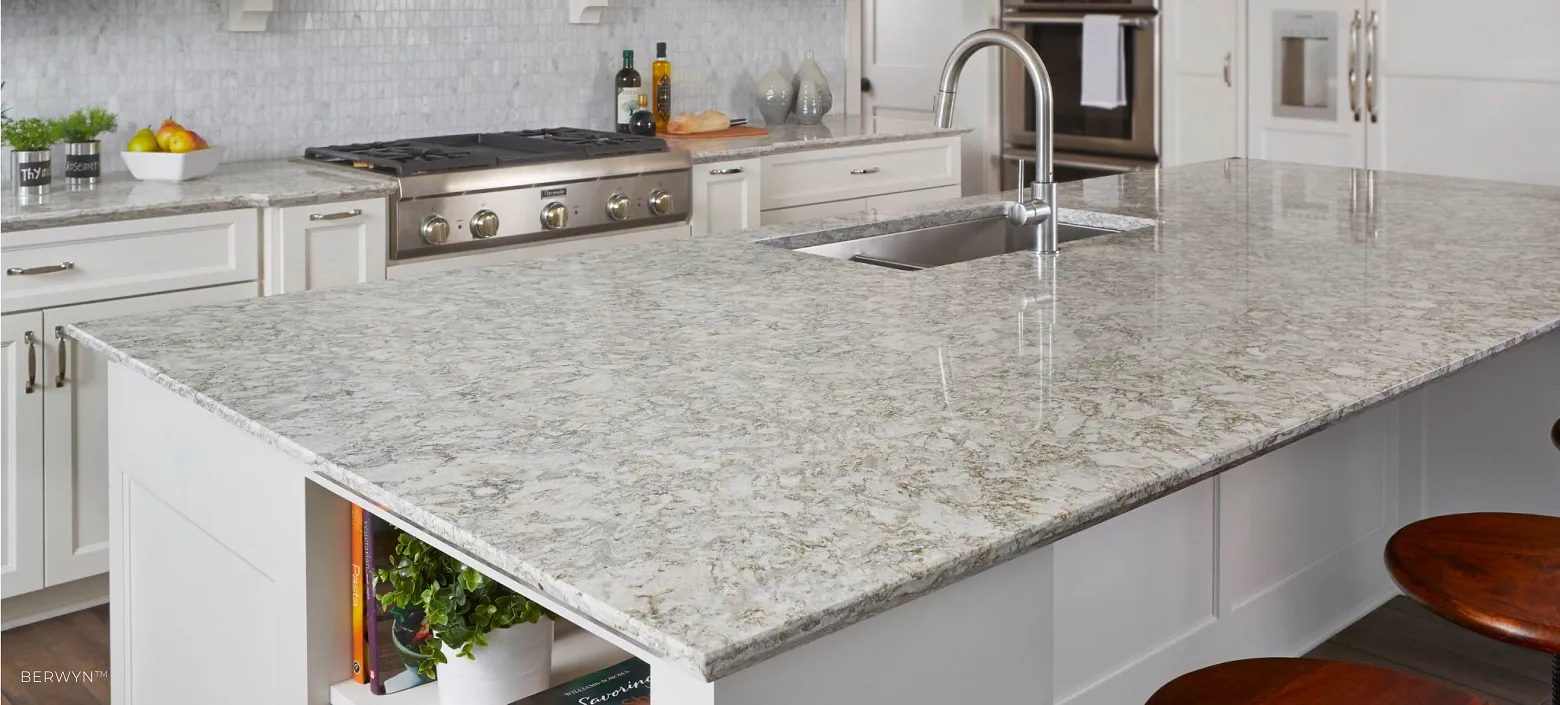When it comes to selecting the ideal countertop material for your home, granite and quartz are two prominent contenders that often leave homeowners in a dilemma. Both materials offer distinct characteristics and unique benefits, making the choice between them a significant decision in any renovation or construction project. In this blog post, we’ll delve into the differences between granite and quartz countertops, helping you gain a clear understanding of what sets these two options apart.
1. Origin and Composition:
Granite: Granite is a natural stone that forms deep within the Earth’s crust due to the cooling and solidification of molten magma. It consists of a combination of minerals, primarily feldspar, quartz, and mica. Each slab of granite features a unique blend of colors, patterns, and veining, resulting in a visually captivating surface.
Quartz: Unlike granite, quartz countertops are engineered using a combination of natural quartz crystals, resins, polymers, and pigments. The manufacturing process involves crushing and mixing the quartz crystals with these components to create a highly customizable and consistent material. This process allows for a wide range of colors, patterns, and finishes to suit various design preferences.
2. Appearance and Design:
Granite: The beauty of granite lies in its natural elegance and organic aesthetics. Its rich color variations, veining, and speckles create a distinct charm that adds character to any space. Each slab’s unique patterning ensures that your granite countertop will be one-of-a-kind, making it an appealing choice for those seeking a touch of nature’s artistic flair.
Quartz: Quartz countertops offer a versatile canvas for design, thanks to their engineered nature. The manufacturing process allows for precise control over the appearance, resulting in consistent patterns and color distribution across different slabs. This predictability is advantageous for larger projects requiring multiple slabs to maintain a cohesive look.
3. Durability and Performance:
Granite: Known for its durability, granite is a tough natural stone that can withstand daily use, impacts, and scratches. It’s also highly resistant to heat, making it an excellent choice for kitchens where hot pots and pans are common. However, certain types of granite may require occasional sealing to maintain their resistance to stains.
Quartz: Engineered quartz countertops are designed to be highly durable and resilient. They are non-porous, which means they are resistant to stains, scratches, and bacterial growth. Additionally, quartz countertops do not require sealing, making them a low-maintenance option for busy households.
4. Maintenance:
Granite: While granite is durable, some varieties can be porous, making them susceptible to staining if not properly sealed. Regular sealing is recommended to maintain the stone’s appearance and resistance to stains.
Quartz: The non-porous nature of quartz countertops makes them highly resistant to staining and bacterial growth. They are easy to clean and do not require sealing, offering a hassle-free maintenance experience.
5. Cost:
Granite: The cost of granite countertops can vary based on factors such as the rarity of the stone, its origin, and its uniqueness. Generally, granite can be more affordable than some engineered quartz options, but this varies depending on the specific selection.
Quartz: Engineered quartz countertops tend to be more uniform in price due to their manufacturing process. While they can be more expensive than certain types of granite, the consistency in appearance and the material’s modern attributes often justify the investment.
6. Environmental Considerations:
Granite: Natural stone like granite is an eco-friendly choice, as it requires minimal processing and does not emit harmful chemicals during its production. However, the extraction and transportation of granite can have an environmental impact.
Quartz: The production of engineered quartz involves mixing natural quartz with resins and polymers, which can have some environmental implications. However, advancements in sustainable manufacturing practices are making quartz more environmentally friendly.
In conclusion, the choice between granite and quartz countertops ultimately comes down to your personal preferences, lifestyle, and design vision. Granite offers a timeless beauty rooted in nature’s artistic flair, while quartz provides consistent aesthetics, modern design options, and easy maintenance. By understanding the key differences between these materials, you can make an informed decision that aligns with your unique needs and preferences. At PGT Cabinets, we can help you make the best decision for your countertop needs! Reach out to us, 813-968-9605, accounting@pgtcabinets.com, or swing by one of our two showrooms!

